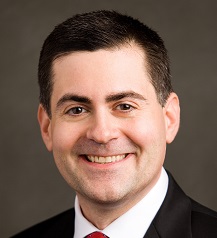By Bob Allen
A Southern Baptist official is standing by a recent comment about Christian talk radio that prompted a network head to request publicly that he apologize or at least explain.
 Russell Moore, president of the Southern Baptist Convention Ethics and Religious Liberty Commission, used Christian radio as an illustration of Christians who condemn others without offering a word of reconciliation.
Russell Moore, president of the Southern Baptist Convention Ethics and Religious Liberty Commission, used Christian radio as an illustration of Christians who condemn others without offering a word of reconciliation.
“I listened on the way back up here from my hometown to some Christian talk radio this week, against my doctor’s orders,” Moore said during a 50-minute message at the April 21-23 ERLC Leadership Summit in Nashville, Tenn. “And honestly, if all that I knew of Christianity was what I heard on Christian talk radio, I’d hate it, too.”
“There are some people who believe that fidelity to the gospel simply means speaking, ‘You kids get off my lawn.’ That is not the message that has been given to us,” he said. “If the call to repentance does not end with the invitation that is grounded in the bloody cross and the empty tomb of Jesus, we are speaking a different word than the word that we have been given.”
 Janet Mefferd, whose nationally syndicated radio show airs on 100 radio stations across the United States, was first to take offense.
Janet Mefferd, whose nationally syndicated radio show airs on 100 radio stations across the United States, was first to take offense.
“I find that really offensive, for a few reasons,” Mefferd said April 24. “First of all, I can think of an awful lot of people in the Old Testament who were pretty darn bold preaching the truth and God was awfully pleased with them.”
Mefferd said she doesn’t know if Moore was referring to her program, but she doesn’t know anyone in the industry who is indifferent to whether or not people are saved.
The president of 95-station Bott Radio Network copied more than 70 Southern Baptist and evangelical leaders in a May 5 letter to Moore asking him to apologize for or a least clarify what he meant by his remark.
WND, formerly WorldNetDaily, reported on the dustup in a weekend story headlined “‘Nuclear bomb’ hits Christian talk radio.”
Moore appeared May 9 on the Erick Erickson Show, which airs on secular radio, and defended his comments in the context of his message that Christians who respond to sin only with condemnation without an offer to repent and believe aren’t preaching the whole gospel.
“That doesn’t mean everybody who is in Christian talk radio,” Moore said. “There are just a ton of people who are doing good, gospel-centered work, but most people when they think of Christian talk radio, it’s the same thing when someone says ‘televangelist’ in the last generation, most people didn’t think of the people who were doing it right. They thought of the typical paradigm that they often hear.”
Mefferd, who says she waited to listen to Moore’s comments in context before voicing her first complaint, said if Moore feels that way he should have confined his observation to one particular “strident and obnoxious” broadcast instead of “indicting the entire industry.”
Mefferd also said she was puzzled by how Moore’s critique applies to Christian talk radio.
“Our genre is not a preaching show,” she said. “We are doing issues. We are doing news. We are telling you what’s going on out there. We’re telling you the latest legislation, the latest court battles, those sorts of things.”
“They’re not preaching shows,” Mefferd said. “They always point to the Lord Jesus. We always try to preach the gospel as much as possible, or put it out there, share the word with people and share the gospel with people, but we’re not preaching shows. So I don’t know what exactly he’s expecting us to do.”
Moore’s predecessor, Richard Land, hosted a nationally syndicated talk radio program for 10 years until ERLC trustees pulled the plug after comments he made on the air about the Trayvon Martin controversy were criticized as racially insensitive.
Land, now president of Southern Evangelical Seminary in Charlotte, N.C., recently launched a new daily three-minute radio program titled Bringing Every Thought Captive on local stations.
